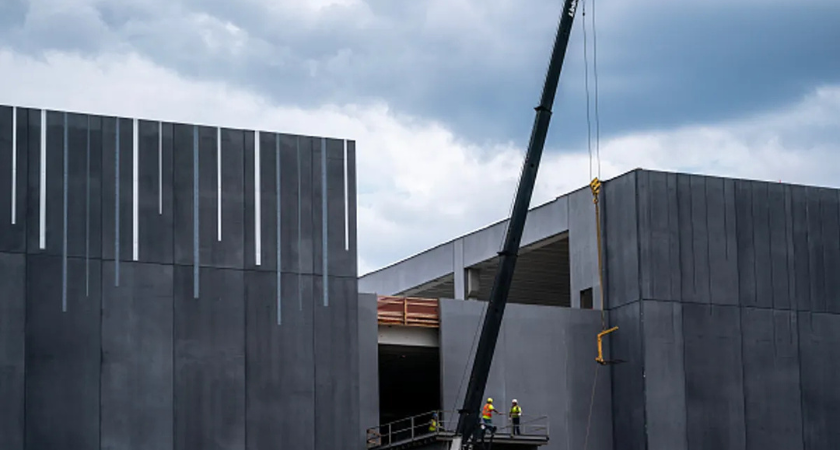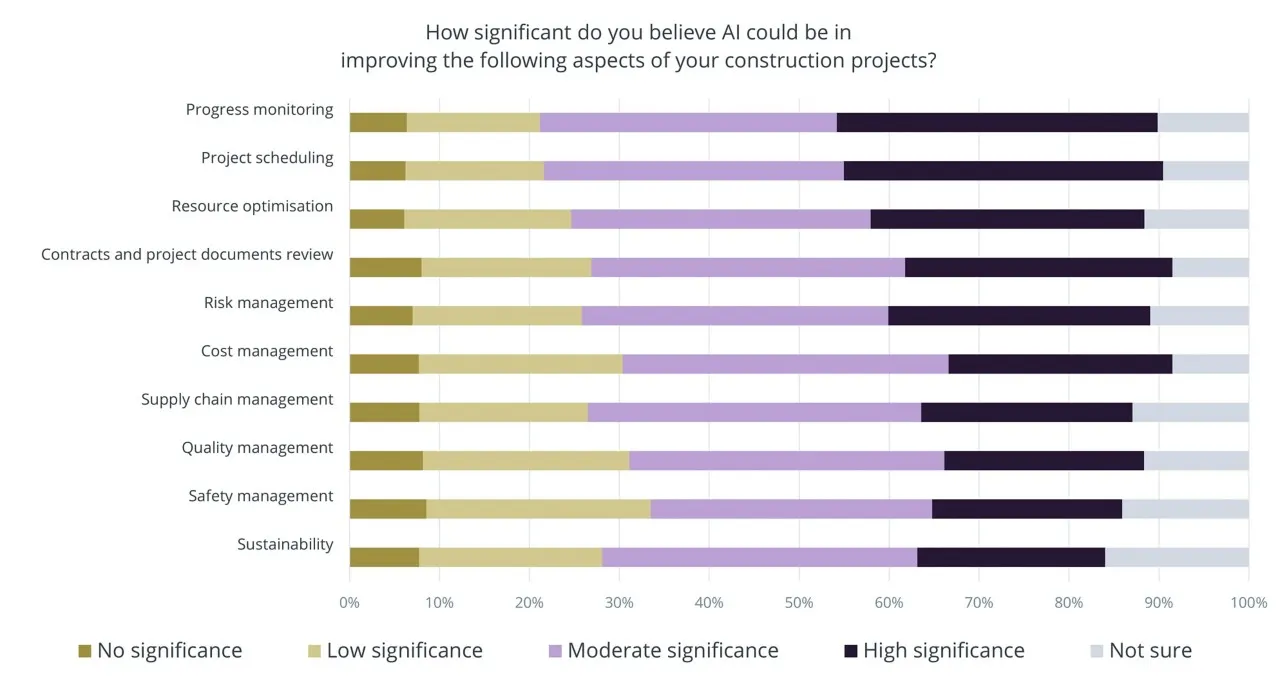
A new global survey has found that while construction professionals acknowledge the benefits of artificial intelligence, far fewer are putting it into practice on jobsites.
The Royal Institution of Chartered Surveyors (RICS) — based in London — surveyed more than 2,200 industry professionals worldwide, with about 10% from the Americas. The survey shows a construction sector that talks about AI as a game changer but remains hesitant to fully integrate it.

According to the report, 45% of respondents said their organizations have not implemented AI at all, while 34% are only in early pilot stages. Only 1.5% reported using AI across multiple processes, and less than 1% said AI is fully embedded organization-wide.
These findings highlight a major disconnect: the industry overwhelmingly believes AI could boost efficiency and safety, yet practical adoption hasn’t followed suit.
The low adoption rate contrasts sharply with the enthusiasm seen among investors. RICS pointed to the Zacua Ventures Contech Investor Survey 2025, which found that 56% of investors plan to increase AI funding compared to last year. Despite this momentum, contractors are not moving at the same pace.
In addition:
This delayed implementation reinforces the construction industry’s long-standing image as a slower adopter of new technology. Yet interest remains strong. Survey participants rated AI’s potential impact as “moderate to high” in areas such as:
Respondents were particularly optimistic about AI in data-intensive or forecasting tasks, reflecting where the tech is already gaining traction in other sectors.
Despite the optimism, cultural and operational barriers persist. Tanja Kufner, head of ventures and startups at the Nemetschek Group, said contractors are overwhelmed by the number of disjointed platforms and tools.
“There’s so many point solutions, so many workflows, and you have to do so many different logins. I just find that crazy,” Kufner told Construction Dive. “I’ve never seen that in any other industry.”
RICS offered a roadmap to help close the gap between intention and implementation. The organization split its recommendations into three phases:

Although the sector is currently behind, the report predicts a potential turning point in the near future.
“These trends suggest the construction industry is reaching an AI tipping point,” the report concluded. “As supporting infrastructure develops, processes and practices become established and implementation costs reduce, widespread AI adoption could occur over a relatively short timescale.”
With rising pressure from investors, evolving use cases, and growing workforce interest, contractors may soon shift from experimenting with AI to adopting it at scale — but only if they bridge the gap between ambition and action.
Originally reported by Matthew Thibault in Construction Dive.